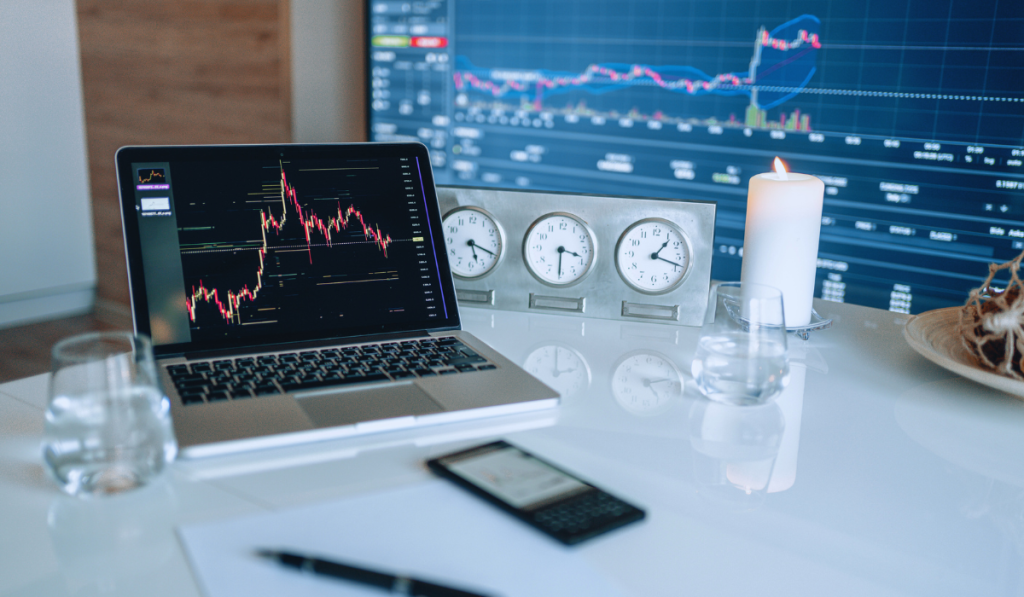What Is Forex Trading? How does it work
Few markets in the financial sector run with the pace, scope, and energy of the foreign exchange market, sometimes referred to as forex. It’s not surprising that individuals all over are fascinated by the concept of swapping one nation’s money for another in hopes of making a profit, because currencies are traded around the clock. Actually, though, what is forex trading and how does it work?
Let’s examine more closely how the FX market works, why it draws so many players, and what novices should know before starting their involvement.

The Foundations: Learning Forex
Forex trading is the buying and selling of currencies only. Every time you convert your local money for another, say for travel, you are engaging in a small portion of the forex market. Still, traders go one step beyond. Their goal is to earn, depending on exchange rates, not to spend money overseas.
Currencies are exchanged in pairs, including GBP/JPY (British pound against Japanese yen) or EUR/USD (euro vs. U.S. dollar). The “base currency” of the pair is the first currency; the second is the “quote currency.” One wants to guess if, in comparison to the quote, the base currency will strengthen or decline.
Thus, when someone claims to be “long EUR/USD,” they are hoping the euro will appreciate in value relative to the dollar.Should they go “short,” they think the euro will weaken.
Forex trading: how does it work?
The FX market isn’t run like your neighborhood stock exchange. There is no centralised exchange. Forex is instead transacted over the counter (OTC) via a worldwide network of banks, institutions, brokers, and individual traders via a global network of banks, institutions, traders,
Among the most crucial things to grasp is that forex is open five days a week, twenty-four hours a day. Beginning in Asia, it travels across Europe, then toward North America, following the sun around the globeTraders have the freedom that this round-the-clock cycle provides to trade during their chosen hours.
Fundamental Characteristics of Forex Trading:
- Forex brokers can provide leverage, which allows traders to handle bigger positions with a quite small outlay. For instance, a 1:100 leverage lets you handle $10,000 with just $100.
- Forex is quite liquid, given the great trading volume.You may, therefore, practically engage or leave deals nearly immediately without waiting for a buyer or seller.
- Currency values may swing quickly in reaction to political events, news, or economic data, therefore offering both opportunity and danger.
- Traders may hedge against currency exposure, commonly found among businesses and foreign investors, or speculate on price changes.
Forex Trade: Who Does It?
The forex market spans not only large banks or investment companies.Actually, anyone with an internet connection may participate; therefore, one of the most easily available financial marketplaces.
The main players are listed here:
- Retail traders are single players making use of brokers’ facilities.
- Banks and financial institutions exchange currencies both for their clients and for themselves.
- Globally operating multinational corporations manage their currency risk.
- Governments and central banks step into markets to either stabilize or change the value of their currency.
- Hedge Funds and Investment Managers: Macroeconomic trend speculating or diversification via currency markets
What drives the Forex market?
Learning how forex trading works mostly requires an awareness of the factors influencing monetary values. Combining economic data, geopolitics, interest rate choices, and general market mood, currency pairs respond.
Among some important influencers are:
- Interest Rates: Because more returns for investors mean a nation’s currency usually gains value when it boosts its interest rates.
- Economic Data: Unexpected swings can result from reports on trade balances, GDP growth, inflation, and employment.
- Political events, including elections, disputes, and policy changes, can all influence investors’ perspective of a nation’s economy and currency.
Though real data frequently drives long-term movements, rumors, news, or speculative activity can often cause short-term fluctuations.
Starting Forex Step-by-Step
If you are initially thinking about forex trading, here is a basic approach to help you:
Study the Foundations
You should understand currency pairings, what “pips” are, the smallest pricing unit, and how to read forex quotations before making a single deal. Also, understand how margin and leverage change your risk.
Select a respectable broker
Your entryway to the currency market is your broker. Seek one with reasonable spreads, a user-friendly trading interface, and regulation. At JoinX Capital, we advise traders on assessing openness and backing for a broker.
Work on a Demo Account
Never undervaluate the need for practice. Using a sample account lets you test ideas without running real money risk.D confidence and knowing your trading style depend on this important stage.
Create a trading plan
Good traders follow a strategy; they do not rely on gut emotion. Having a defined plan is crucial regardless of your preferred technical analysis chart patterns and indicators, or fundamental analysis, economic data, and news.
Starting Small
Start with little money, particularly while you’re still learning. To guard your capital, apply appropriate risk management strategies, including stop-loss orders.
Typical Mistakes New Investors Should Not Make
Forex has fascinating possibilities, but it is not without risks. Many newbies land in the same traps; here’s how to avoid them:
Using too much leverage or too many positions might rapidly empty your account.
Never risk more than you could afford to lose on one trade.
- Pursuing Losses: Emotional judgments can result in more losses overall. Keep cool and follow your strategy.
- Lack of Education: Forex pays for readiness. Always be learning and getting better.
